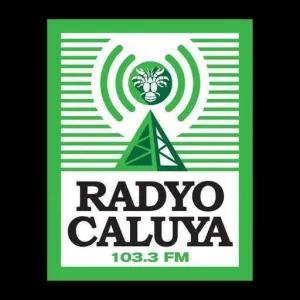Rádio DZRB
0
Compartilhar
0
0
[
Ouça em direto
]Right after the Second World War, on May 8, 1945, the U.S. government established and operated radio station DZFM in the Philippines on frequency 710 Khz with a power of 10 kilowatts through the United States Information Service. It was meant to help fill the need for communications capability in the ravaged nation's reconstruction effort. The following year, in September 1946, two months after the country won her independence from America, station KZFM was turned over to the Philippine government. With the transfer was born the Philip... Ver mais
Quezon AM|738
921-2524
http://www.pbs.gov.ph
Visualizações:
13Estações de rádio recomendadas:
Right after the Second World War, on May 8, 1945, the U.S. government established and operated radio station DZFM in the Philippines on frequency 710 Khz with a power of 10 kilowatts through the United States Information Service. It was meant to help fill the need for communications capability in the ravaged nation's reconstruction effort. The following year, in September 1946, two months after the country won her independence from America, station KZFM was turned over to the Philippine government. With the transfer was born the Philippine Broadcasting Service, PBS the first broadcasting organization in the country.
The station was first operated by the Department of Foreign Affairs until it was transferred to the Radio Broadcasting Board, RBB, which was created by President Manuel Roxas on September 3, 1947. Meanwhile in the same year, an international telecommunications conference in Atlantic City, U.S.A., reassigned the letter "D" to replace the former "K" as the initial call letter for all radio stations in the Philippines. On January 1, 1952, the RBB was abolished to give way to the establishment of the Philippine Information Council, PIC, which then assumed the function of the RBB, including the operation of DZFM. In turn, the PIC was abolished on July 1, 1952, and since then, until the creation of the Department of Public Information in 1969, DZFM and the Philippine Broadcasting Service (PBS) had been operated under the Office of the President.
Over the years hence, the PBS had acquired 13 more radio stations, one TV station which it time-shared with two other organizations, and changed its name to Bureau of Broadcast Services.
At the same time that the BB was blazing a broadcasting trail now known as "network broadcasting", another government organization was building up its broadcast capability to rival, or in some instances, to complement, that of the BB. The National Media Production Center, NMPC, had acquired the facilities of the Voice of America in Malolos, Bulacan in 1969 and steadily brought the old complex up to standards by a steady overhaul, fine-tuning, and outright replacement of outmoded equipment and machines. The NMPC operated the Voice of the Philippines, VOP, on both medium wave-918 kHz and shortwave 9.810 mHz transmissions. In 1979, the NMPC obtained DWIM-FM (now known as DWBR) which operated with a 25-kilowatt power on frequency 104.3 mHz. With this new station and some provincial stations that came under its wings earlier, the NMPC was a network and effectively covered a wide range of the Philippine listenership.
Public broadcasting in the Philippines was thus represented by the BB and the NMPC and catered to the educational and cultural needs of its audiences while endeavoring to keep it entertained with fare from indigenous material. Public service features were the keystone of its programs.
The BB and the NMPC were brought under one administrative roof in 1978 when the Office of Media Affairs was created to provide a loose union for both networks within the former ABS-CBN complex on Bohol Avenue in Quezon City. It was not an ideal situation, to say the least, since, as there had been no clear guidelines on the proper implementation of their respective operational strategies, the BB and the NMPC often squabbled, to the detriment of public broadcasting goals.
The occurrence of the peaceful revolution of 1986 and the ensuing policy arrived at with respect to public broadcasting by the new government changed all this. The Office of Media Affairs was abolished, followed by the NMPC, and finally, the BB. In their stead was a plan, a vision, for one, single government broadcasting organization that would not be an echo device for the government, or much less, for any one man, but would instead dedicate itself to the service of the people through honest, balanced, and meaningful broadcasting.
From this vision came the blueprint for the Bureau of Broadcast Services.
1945 May 8 KZFM started operations under the United States Office of War Information
1946 September 11 KZFM was turned over to the Philippine Government and was first operated by the Department of Foreign Affairs
1947 August 12 EO No. 73 was issued by then President Manuel Roxas formalizing KZFM as under Philippine Government jurisdiction
1947 KZFM became DZFM (710 khz 10 KW) when an international telecommunications conference in Atlantic City, USA substituted the letter D for K as the initial letter for all radio station call signs in the Philippines.
1947 September 12 Pres. Roxas created the Radio Broadcasting Board and took charge of the administration and operation of the KZFM.
The board was composed of the Chief of the Executive Office as Chairman, the Press Secretary as Vice-Chairman and three others who were appointed by the President.
1952 January 01 Radio Broadcasting Board was abolished. Philippine Information Council took over.
1952 July 01 Philippine Information Council was abolished. Philippine Broadcasting Service was born and placed under the Office of the President under the Office of the Executive Secretary.
1972 September 21 PBS was renamed Bureau of Broadcasts (BB) and placed under the Department of Public Information (DPI).
1980 BB and the Voice of the Philippines (VOP) under the Maharlika Broadcasting System (MBS) were merged and subsequently placed under the control of the National Media Production Center (NMPC).
1987 July 25 The Office of the Media Affairs, the National Media Production Center and the Bureau of Broadcasts were abolished to pave the way for the creation of the Bureau of Broadcast Services (BBS).
The station was first operated by the Department of Foreign Affairs until it was transferred to the Radio Broadcasting Board, RBB, which was created by President Manuel Roxas on September 3, 1947. Meanwhile in the same year, an international telecommunications conference in Atlantic City, U.S.A., reassigned the letter "D" to replace the former "K" as the initial call letter for all radio stations in the Philippines. On January 1, 1952, the RBB was abolished to give way to the establishment of the Philippine Information Council, PIC, which then assumed the function of the RBB, including the operation of DZFM. In turn, the PIC was abolished on July 1, 1952, and since then, until the creation of the Department of Public Information in 1969, DZFM and the Philippine Broadcasting Service (PBS) had been operated under the Office of the President.
Over the years hence, the PBS had acquired 13 more radio stations, one TV station which it time-shared with two other organizations, and changed its name to Bureau of Broadcast Services.
At the same time that the BB was blazing a broadcasting trail now known as "network broadcasting", another government organization was building up its broadcast capability to rival, or in some instances, to complement, that of the BB. The National Media Production Center, NMPC, had acquired the facilities of the Voice of America in Malolos, Bulacan in 1969 and steadily brought the old complex up to standards by a steady overhaul, fine-tuning, and outright replacement of outmoded equipment and machines. The NMPC operated the Voice of the Philippines, VOP, on both medium wave-918 kHz and shortwave 9.810 mHz transmissions. In 1979, the NMPC obtained DWIM-FM (now known as DWBR) which operated with a 25-kilowatt power on frequency 104.3 mHz. With this new station and some provincial stations that came under its wings earlier, the NMPC was a network and effectively covered a wide range of the Philippine listenership.
Public broadcasting in the Philippines was thus represented by the BB and the NMPC and catered to the educational and cultural needs of its audiences while endeavoring to keep it entertained with fare from indigenous material. Public service features were the keystone of its programs.
The BB and the NMPC were brought under one administrative roof in 1978 when the Office of Media Affairs was created to provide a loose union for both networks within the former ABS-CBN complex on Bohol Avenue in Quezon City. It was not an ideal situation, to say the least, since, as there had been no clear guidelines on the proper implementation of their respective operational strategies, the BB and the NMPC often squabbled, to the detriment of public broadcasting goals.
The occurrence of the peaceful revolution of 1986 and the ensuing policy arrived at with respect to public broadcasting by the new government changed all this. The Office of Media Affairs was abolished, followed by the NMPC, and finally, the BB. In their stead was a plan, a vision, for one, single government broadcasting organization that would not be an echo device for the government, or much less, for any one man, but would instead dedicate itself to the service of the people through honest, balanced, and meaningful broadcasting.
From this vision came the blueprint for the Bureau of Broadcast Services.
1945 May 8 KZFM started operations under the United States Office of War Information
1946 September 11 KZFM was turned over to the Philippine Government and was first operated by the Department of Foreign Affairs
1947 August 12 EO No. 73 was issued by then President Manuel Roxas formalizing KZFM as under Philippine Government jurisdiction
1947 KZFM became DZFM (710 khz 10 KW) when an international telecommunications conference in Atlantic City, USA substituted the letter D for K as the initial letter for all radio station call signs in the Philippines.
1947 September 12 Pres. Roxas created the Radio Broadcasting Board and took charge of the administration and operation of the KZFM.
The board was composed of the Chief of the Executive Office as Chairman, the Press Secretary as Vice-Chairman and three others who were appointed by the President.
1952 January 01 Radio Broadcasting Board was abolished. Philippine Information Council took over.
1952 July 01 Philippine Information Council was abolished. Philippine Broadcasting Service was born and placed under the Office of the President under the Office of the Executive Secretary.
1972 September 21 PBS was renamed Bureau of Broadcasts (BB) and placed under the Department of Public Information (DPI).
1980 BB and the Voice of the Philippines (VOP) under the Maharlika Broadcasting System (MBS) were merged and subsequently placed under the control of the National Media Production Center (NMPC).
1987 July 25 The Office of the Media Affairs, the National Media Production Center and the Bureau of Broadcasts were abolished to pave the way for the creation of the Bureau of Broadcast Services (BBS).
© LogFM.com, 2009-2025 (2026-02-15,15:00:15)





